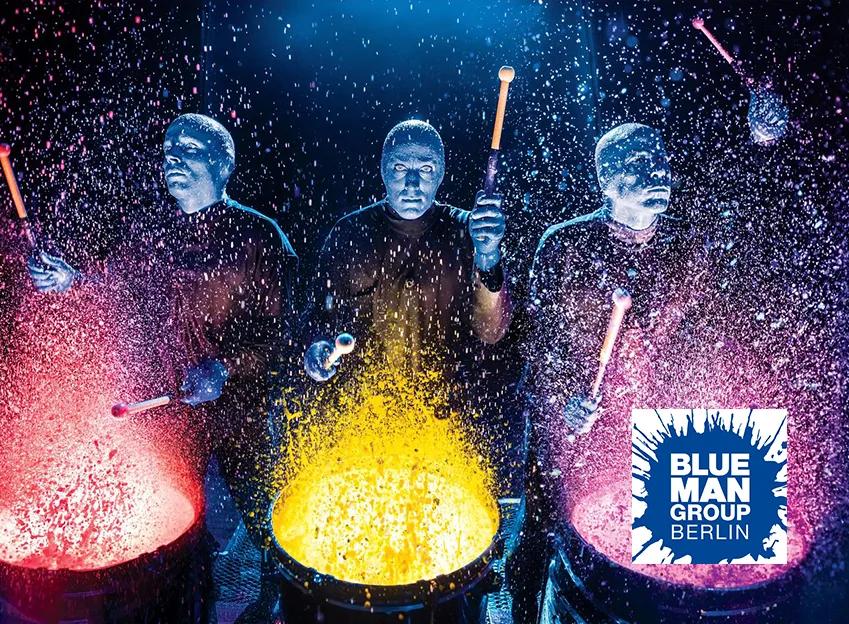Why is the Blue Man Group leaving Berlin in 2025? The final act of a legendary show

After 21 uninterrupted years, the Blue Man Group is saying farewell to Berlin. Their final performances at the Stage Bluemax Theater are scheduled for August 2025, ending a chapter that shaped the cultural identity of Potsdamer Platz. As reported by G.business, the production delivered over 8,500 shows since 2004, attracting more than five million visitors from around the world. For Berlin, the departure is more than just a show closing — it marks the loss of a cultural icon that drew tourists, boosted local businesses, and established the capital as a hub for international performance art.
Where fans can secure the last tickets
With the closure officially announced, demand for tickets has surged. Fans eager to attend the final performances are encouraged to book through Stage Entertainment’s official portal or trusted ticket partners. Online sales are particularly strong among international visitors, who see this as their last chance to watch the Blue Man Group in Europe without flying overseas. Many dates are already nearing full capacity, so advance booking is highly recommended.
Why the Blue Man Group is leaving Germany
The primary reason for the farewell lies in declining audience numbers. What was once a guaranteed sold-out attraction has in recent years seen empty seats, as audiences shifted toward streaming entertainment, immersive digital experiences, and interactive cultural formats. Even the cult status of the Blue Men could not fully counteract this trend.
Another factor is the venue itself. The Bluemax Theater, originally designed as an IMAX cinema, is no longer suitable for the large-scale, technologically demanding productions expected in today’s theater world. Without extensive renovation, it cannot host the next generation of musicals or multimedia shows.
Impact on employees and Berlin’s entertainment economy
The departure also affects around 66 employees at the Bluemax Theater — from stage technicians and musicians to service staff. Their future depends on how smoothly the venue transitions to new productions. Stage Entertainment has expressed gratitude for their dedication and underlined the pride of having made the Blue Man Group a symbol of Berlin’s post-reunification cultural revival.
For the broader economy, the closure is a blow: Potsdamer Platz businesses — hotels, restaurants, and nightlife — had long benefited from the steady flow of international visitors coming specifically for the show.
Will the Blue Man Group ever return to Berlin
At present, there are no plans for a return. The Blue Man Group will continue to perform in Boston, Las Vegas, and Shanghai, while in April 2025 a new format launches in Orlando. This makes Berlin in 2025 the final chance for European fans to see the show without long-haul travel. After August, experiencing the Blue Man Group live will require crossing the Atlantic or heading to Asia.
The future of Bluemax Theater after 2025
The Bluemax Theater will quickly reinvent itself. From late 2025, the ShowSlot Group will bring major international musicals to Berlin, including:
- A Christmas Carol — a festive adaptation of Dickens’ story (Nov–Dec 2025)
- Ghost – The Musical — stage version of the cult classic (Jan–Feb 2026)
- The Cher Show — celebrating the pop legend Cher (Mar–Apr 2026)
- Dracula – The Musical — gothic staging with dark spectacle (May–Jun 2026)
These productions will ensure that Potsdamer Platz remains a central stage for world-class theater, positioning Berlin alongside London’s West End and Broadway in New York.
Who are the Blue Man Group and what makes them unique
The Blue Man Group was founded in New York in 1987 by Chris Wink, Matt Goldman, and Phil Stanton. Their concept was radical: three silent, bald, blue-painted performers in black clothing, who communicate without words using music, rhythm, comedy, and audience interaction.
The “blue” identity is intentionally neutral — not tied to nationality, race, or gender — making the performers a kind of universal human archetype. Their art blends avant-garde theater, experimental percussion, multimedia projections, and absurdist humor.
Audiences sometimes describe them as “naked” or “doing nothing special,” but this minimalism is part of the concept. The stripped-down look focuses attention on action, rhythm, and spectacle, while hiding the enormous technical complexity behind each performance — from custom-built instruments to synchronized digital effects.
This is why the Blue Man Group became a global cultural phenomenon in the 1990s and 2000s: they combined the rebellious spirit of modern art with the accessibility of family entertainment, making them equally appealing to children, tourists, and art critics.
Cultural legacy at Potsdamer Platz
The impact of the Blue Man Group on Berlin’s cultural scene is profound. Since its arrival in 2004, the show has been a cultural landmark, introducing a new style of theater that merged art, comedy, and music. It helped shape Potsdamer Platz into a premier entertainment district, drawing locals and tourists alike. Even though the production is leaving, the legacy remains: the Blue Man Group will forever be remembered as part of Berlin’s post-2000 cultural identity. As many cultural critics in Germany summarize: “The Blue Man Group did not just perform in Berlin — they became part of Berlin itself.”
Stay connected for news that works — timely, factual, and free from opinion — and insights that matter now: German Unity Day 2025: History, Traditions, Greetings & Practical Guide
Photo: Blue Man Group